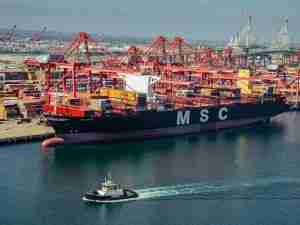The Monetary Authority of Singapore granted "regulatory approval in principle" to Cleartrade this week with the expectation that the firm would receive its formal license to operate a futures market within two weeks.
"In the freight market, this is the first time there has been an OTC cleared exchange venue," Cleartrade's Managing Director Richard Baker told Reuters.
"All we are doing is evolving that existing intermediary role the broker has, moving them to a central market place and on to an electronic platform."
Freight forward agreements (FFAs), which allow a buyer to take a position on where freight rates will stand at a point in the future, are currently not traded on an exchange but over-the-counter.
The Baltic Exchange was also trying to launch a similar central screen that would compete against Cleartrade, but has yet to receive regulatory approval from the UK's Financial Services Authority.
Freight Futures Market
The FFA market has grown from its beginnings in 1985 and was estimated to be valued at an all-time high of $130 billion to $150 billion in 2008 before the economic downturn.
The value of dry transactions fell to around $27 billion last year and was expected to remain flat this year, Baker said.
"On the whole, we see the market holding flat this year," Baker said. "We are expecting a return of growth in 2012."
Iron ore and fertiliser swaps were also listed contracts currently available to trade on its platform.
Freight Investor Services (FIS), one of the biggest FFA brokers, has signed on as the first broker member to trade on the Cleartrade platform. FIS's Managing Director John Banaszkiewicz is a majority shareholder of Cleartrade.
The Singapore firm was also in discussions with other major FFA brokers, including Clarksons, GFI Group and SSY Futures, and hoped to have at least one additional member in the next three months.
"We are mindful of needing to have the brokers' support and at the same point sensitive to the fact that their clients need to feel they can participate in this market and have access to trading liquidity that they currently don't have," Baker said. (Reuters)











